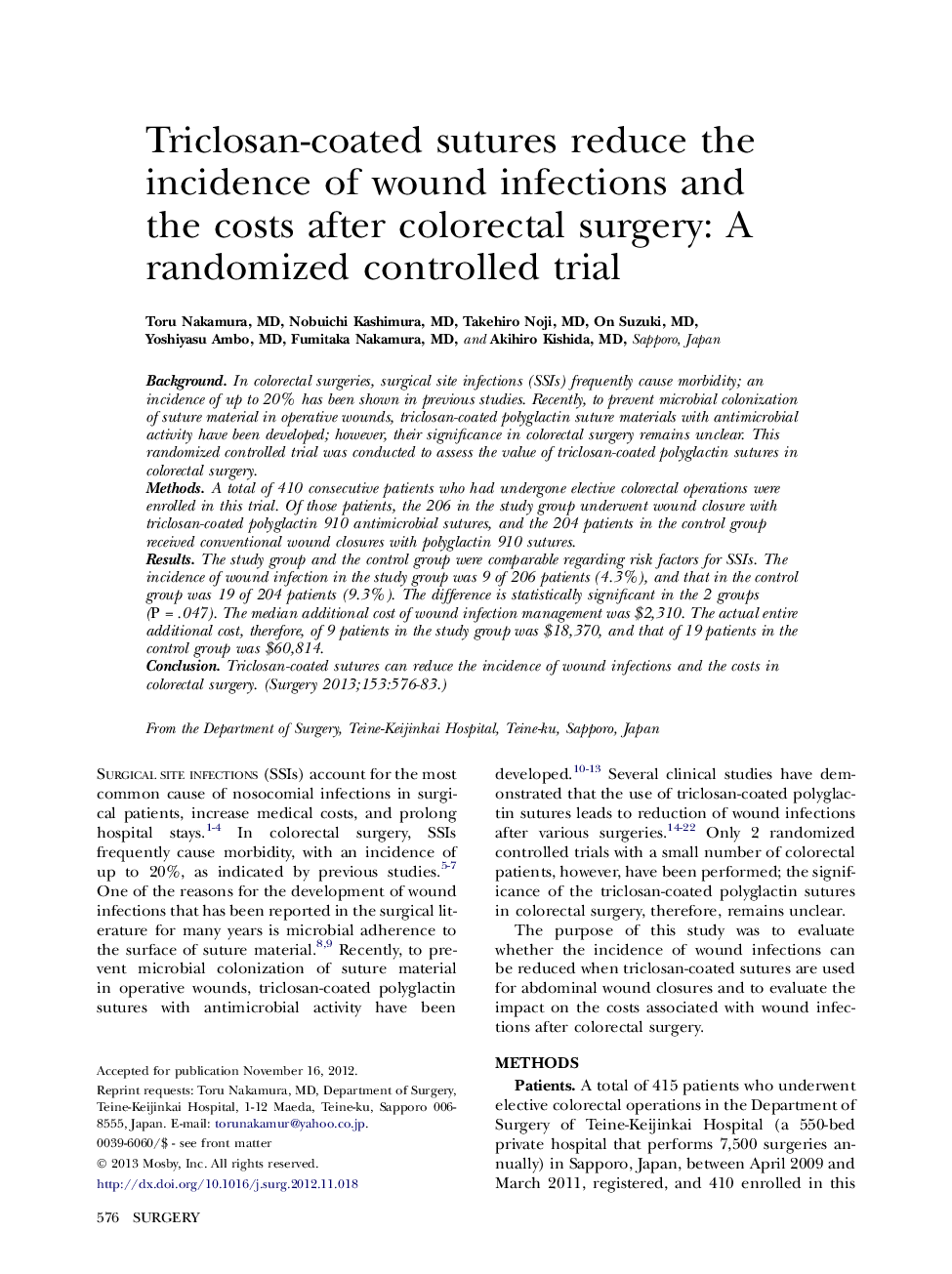| Article ID | Journal | Published Year | Pages | File Type |
|---|---|---|---|---|
| 4307777 | Surgery | 2013 | 8 Pages |
BackgroundIn colorectal surgeries, surgical site infections (SSIs) frequently cause morbidity; an incidence of up to 20% has been shown in previous studies. Recently, to prevent microbial colonization of suture material in operative wounds, triclosan-coated polyglactin suture materials with antimicrobial activity have been developed; however, their significance in colorectal surgery remains unclear. This randomized controlled trial was conducted to assess the value of triclosan-coated polyglactin sutures in colorectal surgery.MethodsA total of 410 consecutive patients who had undergone elective colorectal operations were enrolled in this trial. Of those patients, the 206 in the study group underwent wound closure with triclosan-coated polyglactin 910 antimicrobial sutures, and the 204 patients in the control group received conventional wound closures with polyglactin 910 sutures.ResultsThe study group and the control group were comparable regarding risk factors for SSIs. The incidence of wound infection in the study group was 9 of 206 patients (4.3%), and that in the control group was 19 of 204 patients (9.3%). The difference is statistically significant in the 2 groups (P = .047). The median additional cost of wound infection management was $2,310. The actual entire additional cost, therefore, of 9 patients in the study group was $18,370, and that of 19 patients in the control group was $60,814.ConclusionTriclosan-coated sutures can reduce the incidence of wound infections and the costs in colorectal surgery.
